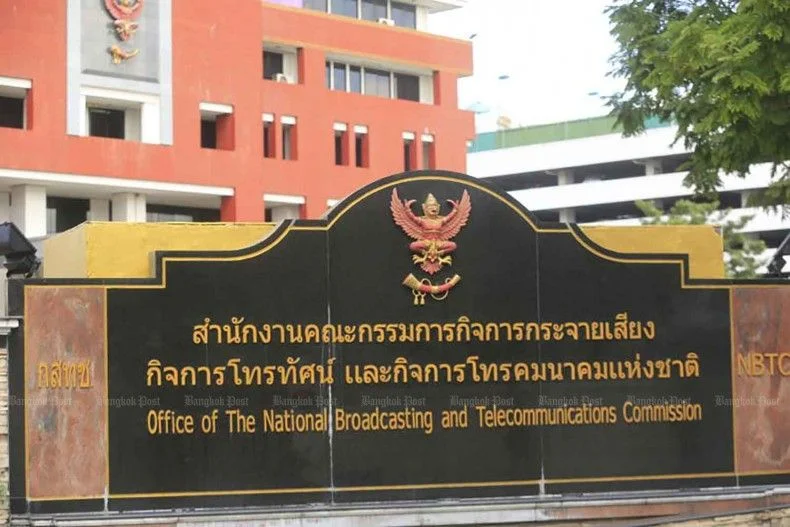The Thai Senate has approved five members to serve on the National Broadcasting and Telecommunications Commission (NBTC) Oversight and Performance Evaluation Committee, commonly known as the “superboard.” The appointments were confirmed in a vote chaired by Speaker Mongkol Surasajja following a closed-session review of candidates’ qualifications.
The committee members represent five key sectors under NBTC’s jurisdiction: broadcasting, television, telecommunications, consumer protection, and the promotion of rights and freedoms.
- Broadcasting Sector: Pol Maj Gen Ekthanat Limsangkas, deputy secretary-general of the Anti-Money Laundering Office, was appointed with 117 votes, defeating Krissada Rojanasuwan, deputy director-general of the Min Buri Civil Litigation Office, who received 28 votes. Thirty-seven senators abstained.
- Television Sector: Phansak Chanpanya, an NBTC staff member and subcommittee member on telecom licensing and oversight, was elected with 103 votes, surpassing former NBTC staffer Pennapa Chupong, who received 52 votes. Thirty-one senators abstained.
- Telecommunications Sector: Uruya Weesakul, an academic from Thammasat University’s Faculty of Engineering, won with 114 votes against Phichit Suwannakitburan, former NBTC assistant secretary-general for Regional Affairs, who received 25 votes. Forty-five senators abstained.
- Consumer Protection Sector: Gen Sithichai Makkunchorn, previously attached to the NBTC Chairman’s Office, secured 105 votes, defeating academic Phichit Thi-in from Chandrakasem Rajabhat University, who received 36 votes. Forty-two senators abstained.
- Promotion of Rights and Freedom Sector: Issararat Krueahong, assistant secretary to the NBTC, was selected with 100 votes over Watcharee Wannasri, a private-sector executive in offshore oil rig and cable installation, who garnered 60 votes. Twenty-five senators abstained.
The formation of this superboard strengthens NBTC’s governance and oversight capabilities across its regulated sectors, aiming to enhance performance evaluation and regulatory accountability.















